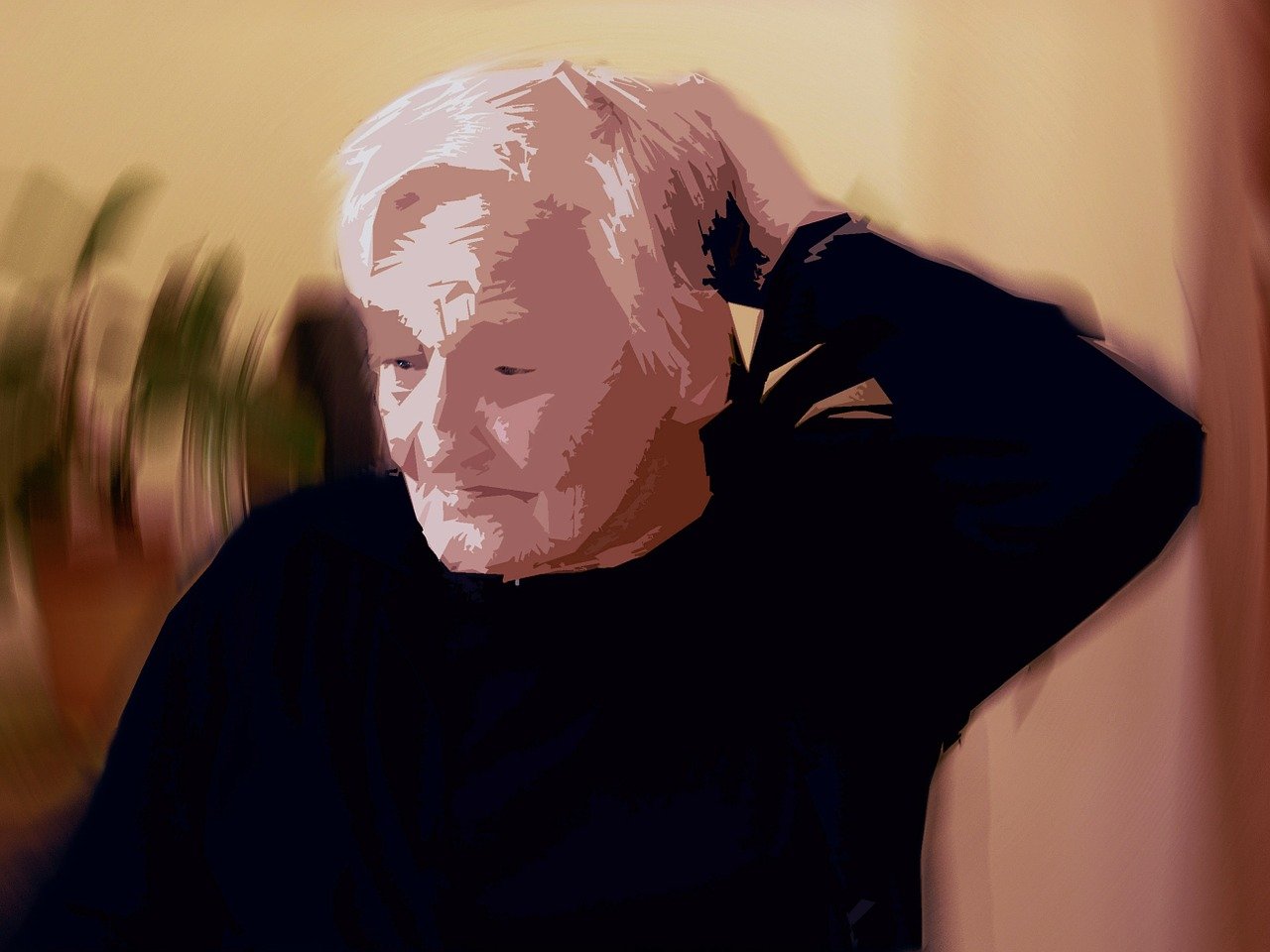The recent movie Vanvas is the story of a strong and capable man stricken by dementia and in the end abandoned by his family in Varanasi. It may not be typical but it illustrates the fear and incomprehension which most of us feel towards dementia.
Over 55 million people worldwide are living with Alzheimer’s and other forms of dementia. About 8.8 million Indians older than 60 years live with dementia and the number is increasing.[1] Many more are affected, as family and friends.
Yet there is very little awareness, either of the scale of the challenge or how to respond. Many families are going through sadness, doing the best they can. Here is a great challenge and opportunity for churches – to demonstrate a positive response of love and support for those living with dementia and their caregivers.
What is Dementia?
Dementia is an umbrella term for a range of illnesses that affect the functioning of the brain. Dementia generally affects older people, though it is not the same as ‘old age’. All of us lose capacity as we get older, but dementia is more than that: it is a progressive illness which affects the brain, with various effects on the whole person.
This is the definition from WHO:
The main types of dementia are:
- Alzheimer’s disease, around 60% of cases.
- Vascular dementia following a major stroke or several minor strokes, around 20%.
- Lewy body dementia often causes visual hallucinations, confusion and trembling, stiffness and falls. There are memory difficulties and problems in planning tasks.
- Fronto-temporal dementia may result in bizarre behaviour and a loss of social awareness. Speech is often affected.
- Dementia linked to Parkinson’s disease, motor-neurone disease or multiple sclerosis.
There are many more variations, perhaps up to 100. An increasing number of people, around 5% of the total, experience dementia below the age of 65. This is described as ‘early onset’ dementia.
The causes of dementia are not completely known, but the most obvious are related to the connections between the 84 billion neurons in the brain, which pass messages between each other, guiding every aspect of the body’s life and activity. In 1906 Dr Alois Alzheimer, a physician in Germany, found protein in the brain of a deceased patient, blocking the connections between the neurons. This was the beginning of research into what became known as Alzheimer’s Disease. A major goal since then has been to find ways to remove these protein blocks in the search for treatment and cure. The results are still not completely successful and other causes may also be involved.
Dementia generally progresses in three stages – mild, moderate, severe. But there are no fixed boundaries or length of time for these stages and people may progress in very different ways.
Dementia has widespread effects. The most commonly observed symptom is a loss of memory, with people repeating questions or saying the same things over and over. This can affect daily life. It’s not the same as the occasional memory loss that any of us may experience, for example forgetting where you put your car keys. It is more like finding your car keys and asking ‘What are these for?’
Memory is such a remarkable thing. We take it for granted. But when you start the morning not knowing what day it is, not remembering what happened yesterday, not quite sure what happens next, each day is a succession of new experiences.
And memory loss is only one of many effects of dementia. Different parts of the brain can be affected, resulting in changes to different areas, such as:
- Cognitive – difficulty with memory, losing things, storing things in odd places to keep them safe;
- Emotional – becoming agitated about small things, being suspicious or paranoid, getting impatient, for example about waiting in line;
- Functional – unable to plan, losing skills like sewing or cooking.
And more…
It’s not just individuals. Dementia affects a range of people, like the ripples from a stone dropping into a pool. There is the person living with dementia. Then those who are caring for them, usually family members or close friends. Then other family members who are affected, and then the wider circle of friends and the community.
Responding to Dementia
How do we respond to those living with dementia, especially if we are caring for a family member or friend? There are two sides to this:
Medical responses
Doctors can give a diagnosis, usually through a series of memory and other tests for the brain’s functions. A scan may reveal parts of the brain with ‘atrophy’ or loss of function. It is helpful to get a diagnosis but we must avoid expecting either that diagnosis can lead to cure, or the opposite response – that this is the end for the person living with dementia (and for those caring for them). There are still many possibilities and opportunities for those diagnosed with dementia of any kind.
On one hand, there is still no cure for dementia. Some drugs can help to slow down the effects, for some people. This helps people to maintain their quality of life for longer. But it is not a cure. The most recent drugs have shown good results in removing the blocks that cause the breakdown of connections in the brain. But they are still in early stages of development and come with strong side effects for many.
Medical help is important for dealing with physical effects and related illnesses. But it does not help much with the challenges of daily living.
Treatment through Relationships
On the other hand, we can treat the person with dementia by the way that we relate. Love and respect are the most important forms of treatment.
The biggest challenge we face with dementia is that the person seems to be changing. We are tempted to think ‘Is this the same person? What has happened to them?’
John Zeisel[3] points out that the person living with dementia is still a person with whom we can relate, but it is a different relationship. It is the same person, but at the same time it is not the same person. She has changed and we need to understand this change. We can’t go back to the old relationship. But we can build a new relationship.
This is challenging but rewarding. Stephen Miller[4] comments:
‘When it comes to communication you must remember that a person with dementia cannot change the way they are… It follows therefore that you are the one who has to change.’ (original italics)
Person-centred care
In the 1990s Dr Tom Kitwood, a psychologist, found that the prevailing medical approach to dementia resulted in a ‘malignant psychology’. It emphasised only the medical aspects of the patients’ condition, with no concern for their personal situation. He found that dementia doesn’t progress in a linear fashion, and it varies from person to person. One of the most important factors is the quality of care and relationships. It is in relationship that a person’s sense of self remains.[5]
Kitwood re-emphasised the concept of person-centred care. What does a person living with dementia need? It is essentially love at the centre, expressed in five ways, like a flower’s petals. They need: comfort or warmth, attachment, being included and occupied, having an identity. This is true for all of us. But most of us can adjust our situation to meet our needs. The person living with dementia may not be able to.
Person-centred care affirms their personhood; it implies recognition, respect, and trust. We need to enter the world of the person living with dementia, rather than insisting that they return to our ‘reality’. We need to learn to validate their experience.
Engaging in positive activities helps to maintain and strengthen relationship abilities.[6] Activities provide mental and physical stimulation and lead to continued good feeling. They also help to maintain a person’s self-identity.
So, the most important way to ‘treat’ the disease of dementia is through love and respect. The person with dementia is still a person. Relationships are vital. We have to enter their world.
Supporting the Caregivers
Serving with respect and love is fundamental. But it is not always easy. Caregivers – usually family or close friends – face many challenges and huge responsibility. They are ‘the keepers of dignity and personhood’ for the person living with dementia.[7] Caregivers need support, so that they can continue to love and care.
Here are some of the challenges[8] that they may face from the person living with dementia:
| Anger | Unpredictability |
| Lack of appreciation | Apathy |
| Loss of inhibition | Slowness |
| Accusation | Communication |
Dependency on the caregiver, (so that the person is ‘shadowing’ them, always attached)
‘Sundowning’ (this is a common experience, when a person becomes restless, sometimes agitated or distressed, often in the later afternoon or towards the end of the day. Maybe they are tired or uncomfortable or even in pain).
| Sleep difficulties | Incontinence |
How do we deal with such challenges?
First, it is important to remember that some of these, like anger, accusation or apathy, are just symptoms of some underlying unease. A person may be feeling uncomfortable in a new environment, away from their familiar setting. They respond by getting angry or continually asking to go home. They may be uncertain what is going on, so they retreat into apathy. So, we have to try to understand the underlying causes behind certain behaviours.
Then we need to respond to those underlying causes, with patience and respect (arguing is never helpful). We might distract them with some other activity, or offer them a cup of tea or something to eat, if they need refreshing, or a rest if they are tired. Or suggesting some activity, as mentioned above – singing or drawing or a puzzle; looking at pictures, listening to music, enjoying some favourite perfume; perhaps cooking together. Our aim is to recognise and acknowledging their emotional response, behind the behaviour that we see, so that they feel listened to and understood.
For example, a person might frequently ask the time, which can become annoying to the caregiver. They might reply ‘Don’t keep asking the time!’ But a possible better response might be, ‘Oh, you are thinking it’s time for tea: let’s have a cup of tea together!’
Everybody is different and not all those with dementia will behave in these ways. Some of these actions are irritating only in a minor way. But cumulatively the effect is draining. For many caregivers the word that sums it up is relentless.
As a result, caregivers can feel these effects:
- Tiredness;
- Worry – about planning ahead or finances;
- Dealing with the health and social care system;
- Feeling alone;
- A range of emotions, such as hopelessness, grief, anger or fear;
- Spiritual tensions: ‘Wake up, God! Why are you sleeping?’ (Psalm 44.23)
How do caregivers manage? The starting point is that this is a calling, which we accept. We are called to love and serve. And we are following the example of Jesus.
Then caregivers need to build their support team. This is basically a group that gathers round a person living with dementia and their caregiver(s) to work with them in giving on-going support and encouragement. It can take many forms, but there are two major components:
Professional support (medical and social) and informal support (family and friends).
We cannot manage this task alone:
Others have advised: ‘Sharing the care is not failure to care’.
The Churches’ Opportunity
Churches have a great deal to offer.
(a) Churches offer relationships with continuity. Professionals come and go, and organisations are not always accessible, but church members continue and they have existing relationships. They can offer time – to listen, to share, to be with people, both the persons living with dementia and their caregivers.
(b) Even more important, churches are communities of spiritual power. They can share faith, hope, forgiveness and prayer.
Five simple ways to be aware and show our support
- Seeing the caregivers: we need to look carefully to identify the caregivers in our church or fellowship. Not all wish to be known as caregivers.
- Listening: To what extent are we engaging with them and learning about their situation?
- Praying: how can we pray for them and with them? Can we build that into our church’s life – in ways that are sensitive?
- Enabling & Including: how do we include those living with dementia in our church life? Can we enable them to continue serving, in appropriate ways? Can we continue to involve the caregivers, not neglecting them?
- Offering practical support: there are many ways to do this.
What the Gospel tells us
Here are simple truths to empower and support us.[10]
- We have a heavenly Father who is both loving and powerful.
- We are persons, made in God’s image.
- When we suffer, God is with us.
- We have hope, because our relationship with God continues.
- We are part of a community of love, friendship and support.
Footnotes
[1] https://dementiacarenotes.in/dementia-care-notes-india-site-map/ This site has good information about dementia in India
[2] www.who.int/news-room/fact-sheets/detail/dementia (accessed 2nd October 2019)
[3] John Zeisel, I’m Still Here, London: Piatkus, 2011
[4] Stephen Miller, Communicating Across Dementia, London: Robinson, 2015
[5] Tom Kitwood, Dementia Reconsidered: The Person Comes First (Buckingham: Open University Press, 1997),
[6] Lee-Fay Low, Live and Laugh with Dementia, Chatswood, NSW: Exisle Publishing, 2014
[7] Zelda Freitas, Navigating the carer journey as a daughter and social worker, World Alzheimer Report 2022, Alzheimer’s Disease International, page 266, https://www.alzint.org/resource/world-alzheimer-report-2022/
[8] John Dunlop, Finding Grace in the Face of Dementia, Wheaton, IL: Crossway, 2017
[9] Simon Atkins, First Steps to Living with Dementia, Oxford: Lion Hudson, 2013, page 103
[10] These truths are explained in more detail in Unfailing Love, Robin Thomson, The Good Book Company, to be published in July 2025, https://www.thegoodbook.co.uk/unfailing-love

Robin Thomson was born in India and spent over twenty years teaching the Bible and training church leaders there, together with his wife Shoko. After she was diagnosed with Alzheimer’s he cared for her.
He was a former TRACI Society member. He has written about their experience in Living with Alzheimer’s—a Love Story, available on Amazon.in, or direct from Good Word Communication Services for Rs 495.

